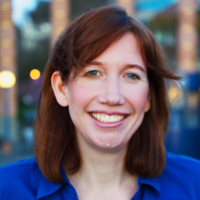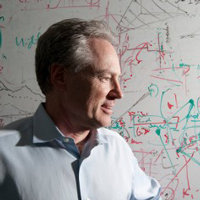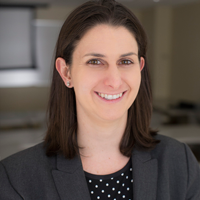Announcements
 New Incoming CRA Board Member: Jaime Teevan
New Incoming CRA Board Member: Jaime Teevan
On July 1, Jaime Teevan will replace Margaret Martonosi on the CRA Board. We would like to thank Martonosi for her term of service on the CRA Board. Martonosi will step down a year early to focus on other activities. This fall, she will become a co-chair of CRA’s Committee on the Status of Women in Computing Research, taking the place of current co-chair Nancy Amato, and serving along with Julia Hirschberg.
Jaime Teevan is a principal researcher at Microsoft Research and an affiliate associate professor at the University of Washington. At Microsoft Research she leads the microproductivity team and shipped the first personalized search algorithm used by Bing. Teevan has published hundreds of award-winning research papers, technical articles, books, and patents, and given keynotes and lectures around the world. Her groundbreaking research at the intersection of information retrieval and human computer interaction has earned her the Technology Review TR35 Young Innovator, CRA-W Borg Early Career, and Karen Sparck Jones awards. She received a Ph.D. and S.M. from MIT and a B.S. with honors from Yale University.
CRA Welcomes Claire Brady
CRA recently hired Claire Brady as program manager. In her new role, she is responsible for planning CRA’s Committee on the Status of Women in Computing Research (CRA-W) program events and providing support for initiatives that enrich the community’s awareness of CRA, its committees, mission, and services. In her first two weeks at CRA, Claire has created Undergraduate Town Hall resources, which provide answers to frequently asked questions on cyber security and computer science extracurricular activities. She published 2017 Grad Cohort resources and the Scholarships for Women Studying Information Security (SWSIS) 2017 Scholars on the CRA-W website. She has also begun assisting program applicants for a number of CRA-W programs.
Before joining CRA, Claire worked at a health care technology firm where she developed resources and organized events for 900 hospitals with the goal of maximizing quality and utilization improvements at each hospital.
She holds a bachelor’s of science in education in kinesiology as well as a master’s of education in exercise physiology from the University of Virginia.
 Former CRA Board Member Jeannette Wing to Lead Columbia University’s Data Science Institute
Former CRA Board Member Jeannette Wing to Lead Columbia University’s Data Science Institute
On May 1, Columbia University President Lee C. Bollinger announced that Jeannette M. Wing, currently corporate vice president of Microsoft Research, will become the Avanessians Director of Columbia’s Data Science Institute and Professor of Computer Science.
“Jeannette Wing is a pioneering figure in the world of computer science research and education. Her addition to the University’s academic leadership team reflects the continuing expansion of our work in this field,” said Bollinger. “Our Data Science Institute is indispensable to virtually every scholarly initiative at the University dedicated to addressing a societal problem. The benefits to be derived from Jeannette’s leadership and her presence here will be immense.”
Last November, Wing published an Executive Q&A in Computing Research News. She joined Microsoft Research in January 2013, after holding positions in academia and government, including Carnegie Mellon University and the National Science Foundation (NSF). From 2007 to 2010, she served as assistant director of the Computer and Information Science and Engineering Directorate at the NSF. Wing is a former CRA board member and recipient of the 2011 CRA Distinguished Service Award.
 Eric Horvitz, Former CCC Council Member, is New Head of Research at Microsoft
Eric Horvitz, Former CCC Council Member, is New Head of Research at Microsoft
By Helen Wright, CCC Senior Program Associate
It was recently announced that Eric Horvitz, former Computing Community Consortium (CCC) Council member and current Co-Chair of the AI and Robotics Task Force, is the new head of Microsoft Research. Yesterday, it was announced that Jeannette Wing was leaving to lead Columbia’s Data Science Institute.
Horvitz has long been a leading voice in AI safety and ethics. Recently, he announced the new Partnership on AI that consists of a consortium including Microsoft, Google, Amazon, Facebook, and IBM. The goal of the partnership is to bring industry together to talk about the use of AI for humanity’s benefit.
From Quartz:
Horvitz wants to fundamentally change the way humans interact with machines, whether that’s building a new way for AI to fly a coworker’s plane or designing a virtual personal assistant that lives outside his office. He will get a chance to further his influence, with his appointment yesterday as head of all of Microsoft’s research centers outside Asia.
In his new role, Horvitz will harness AI expertise from each lab—in Redmond, Washington; Bangalore, India; New York City, New York; Cambridge, Massachusetts; and Cambridge, England—into core Microsoft products, as well as setting up a dedicated AI initiative within Redmond. He also plans to make Microsoft Research a place that studies the societal and social influences of AI. The work he plans to do, he says, will be “game-changing.”
Congrats, Eric!
 Former CRA Board Member Receives 2016 ACM Software System Award
Former CRA Board Member Receives 2016 ACM Software System Award
Former CRA Board Member Alfred Z. Spector was named one of the recipients of the 2016 ACM Software System Award. Mahadev Satyanarayanan, Michael L. Kazar, Robert N. Sidebotham, David A. Nichols, Michael J. West, John H. Howard, Spector and Sherri M. Nichols were honored with the award for developing the Andrew File System (AFS).
From the ACM Announcement:
AFS was the first distributed file system designed for tens of thousands of machines, and pioneered the use of scalable, secure and ubiquitous access to shared file data. To achieve the goal of providing a common shared file system used by large networks of people, AFS introduced novel approaches to caching, security, management and administration. AFS is still in use today as both an open source system and as the file system in commercial applications. It has also inspired several cloud-based storage applications.
…
The ACM Software System Award is presented to an institution or individual(s) recognized for developing a software system that has had a lasting influence, reflected in contributions to concepts, in commercial acceptance, or both. The Software System Award carries a prize of $35,000. Financial support for the Software System Award is provided by IBM.









